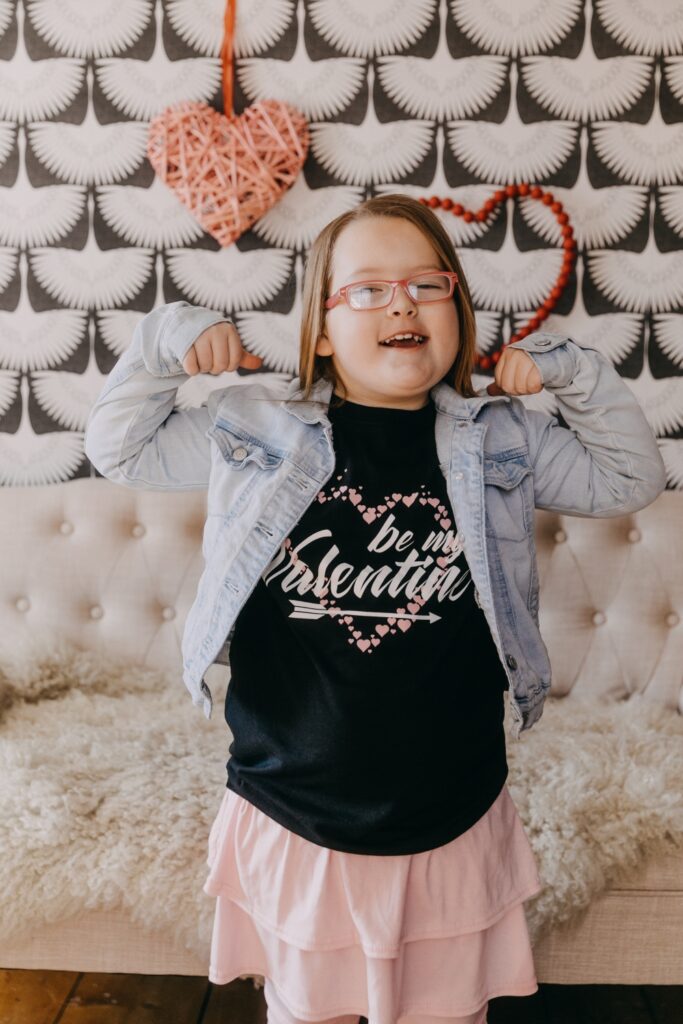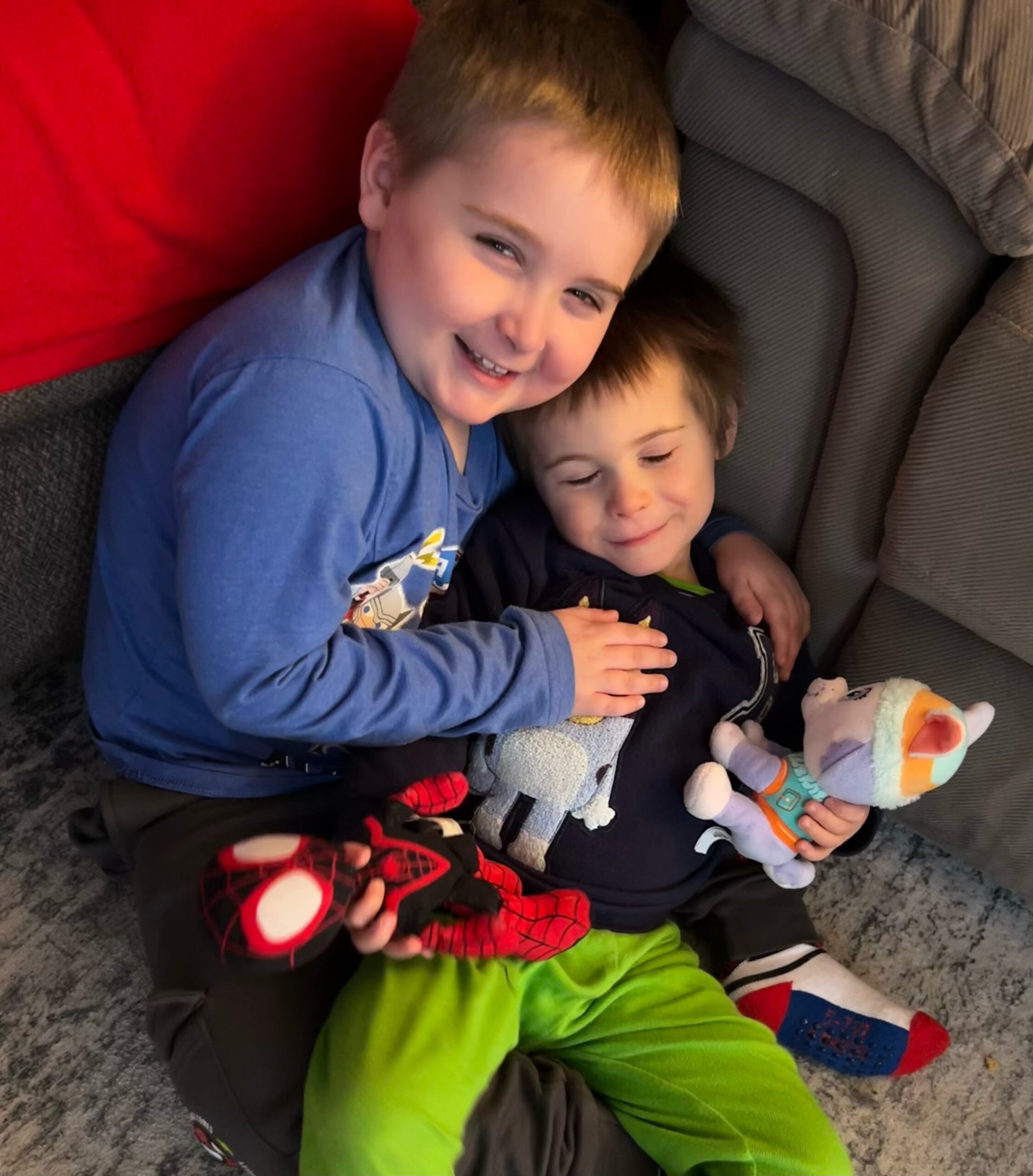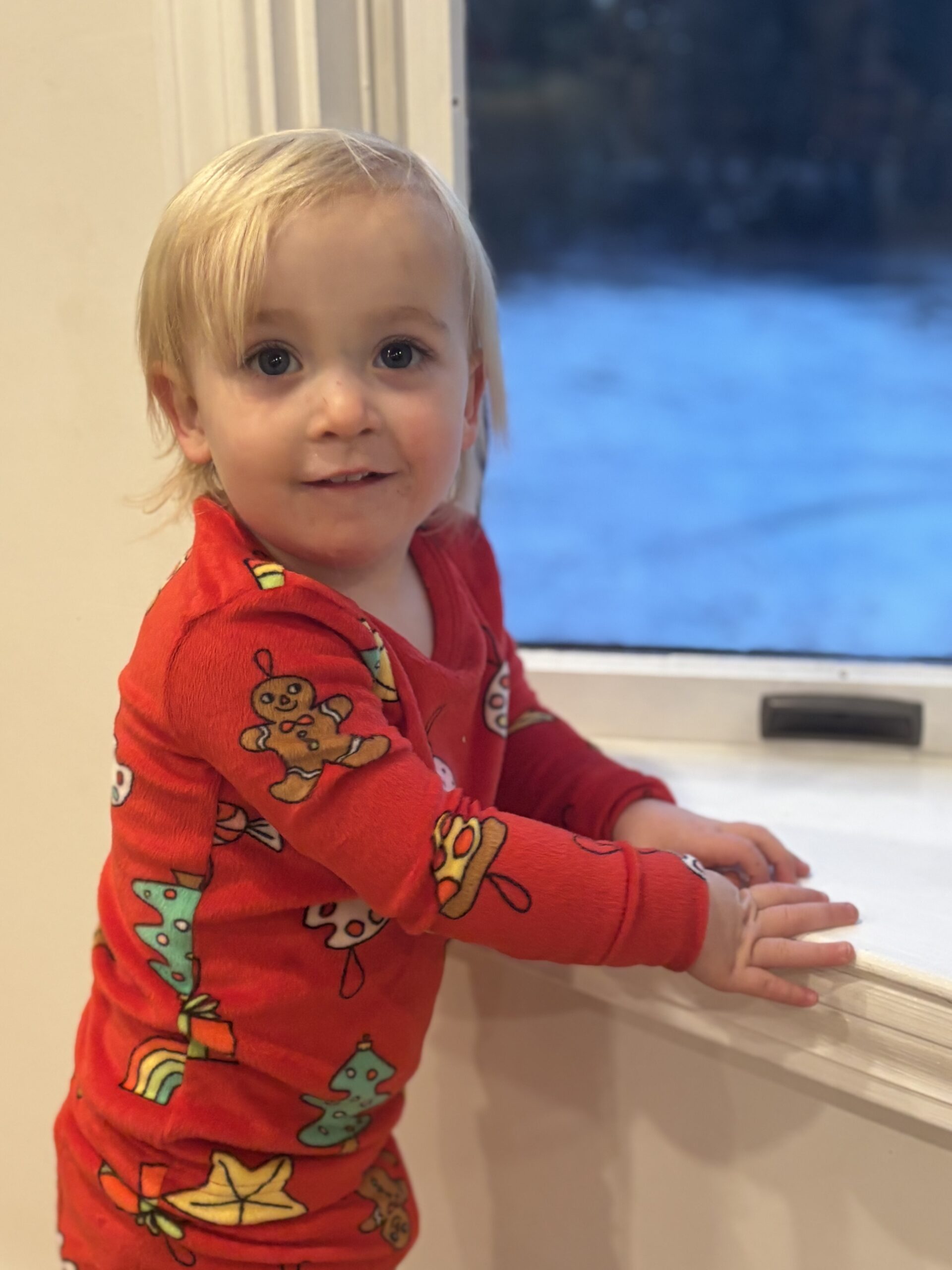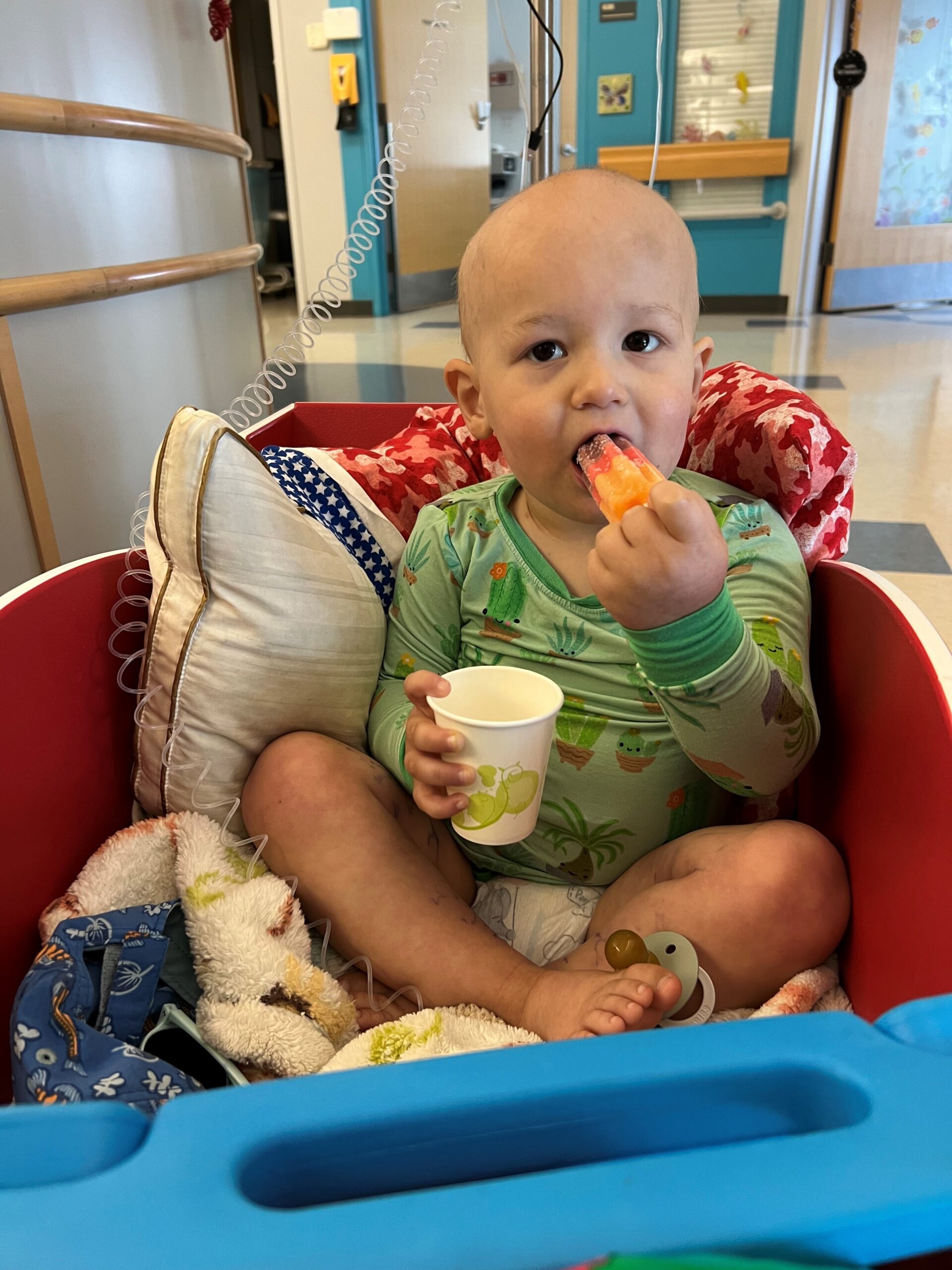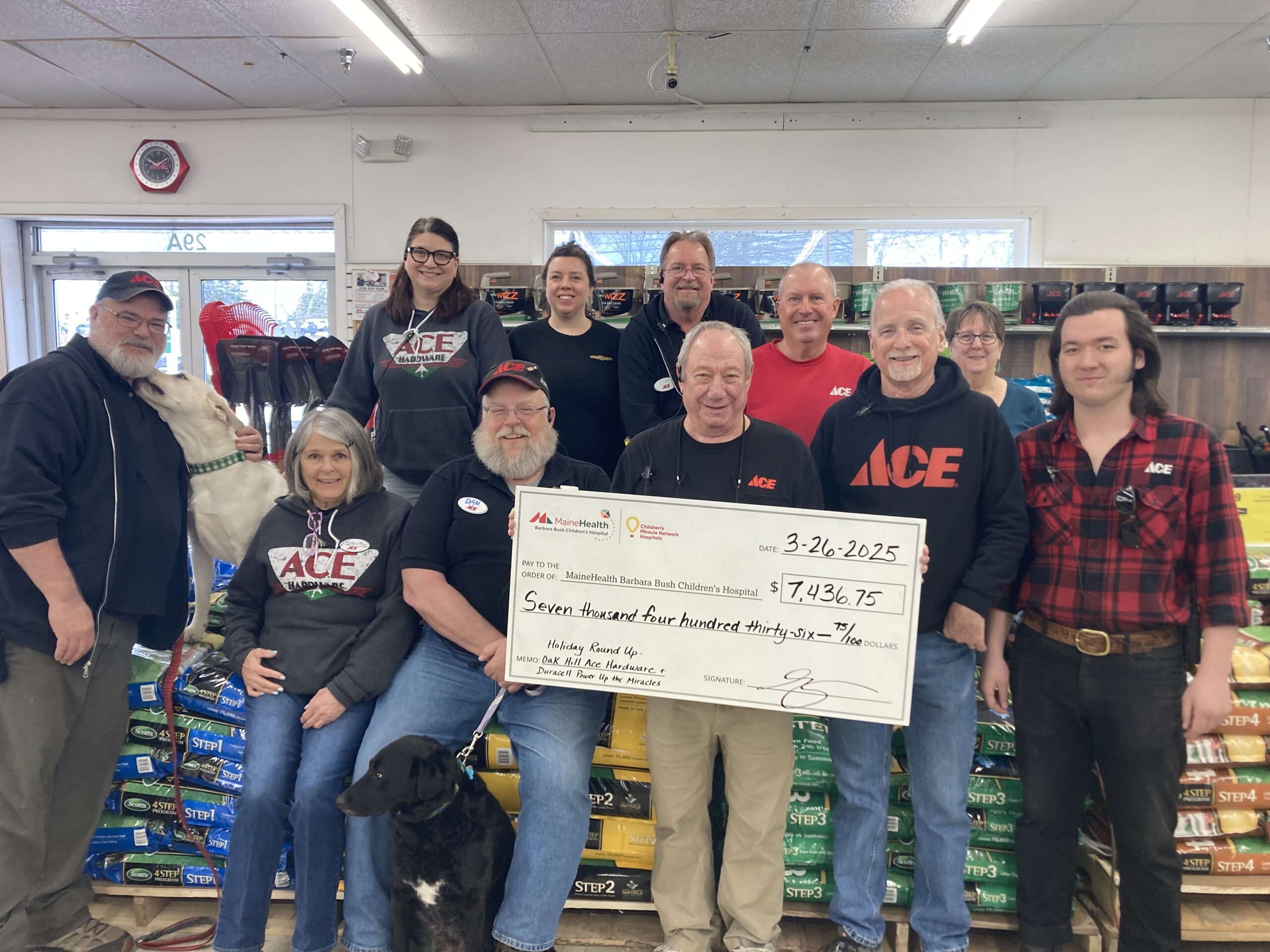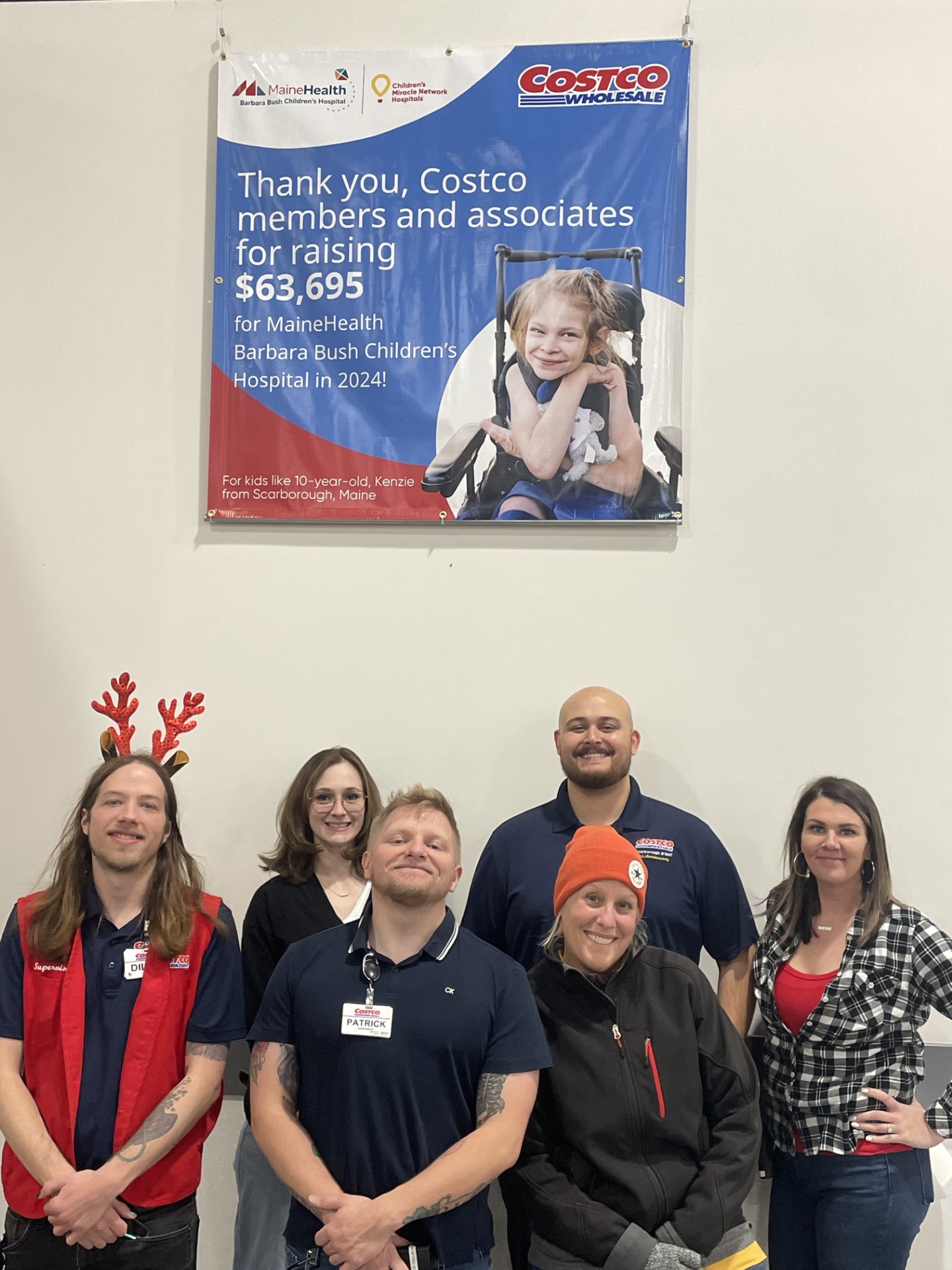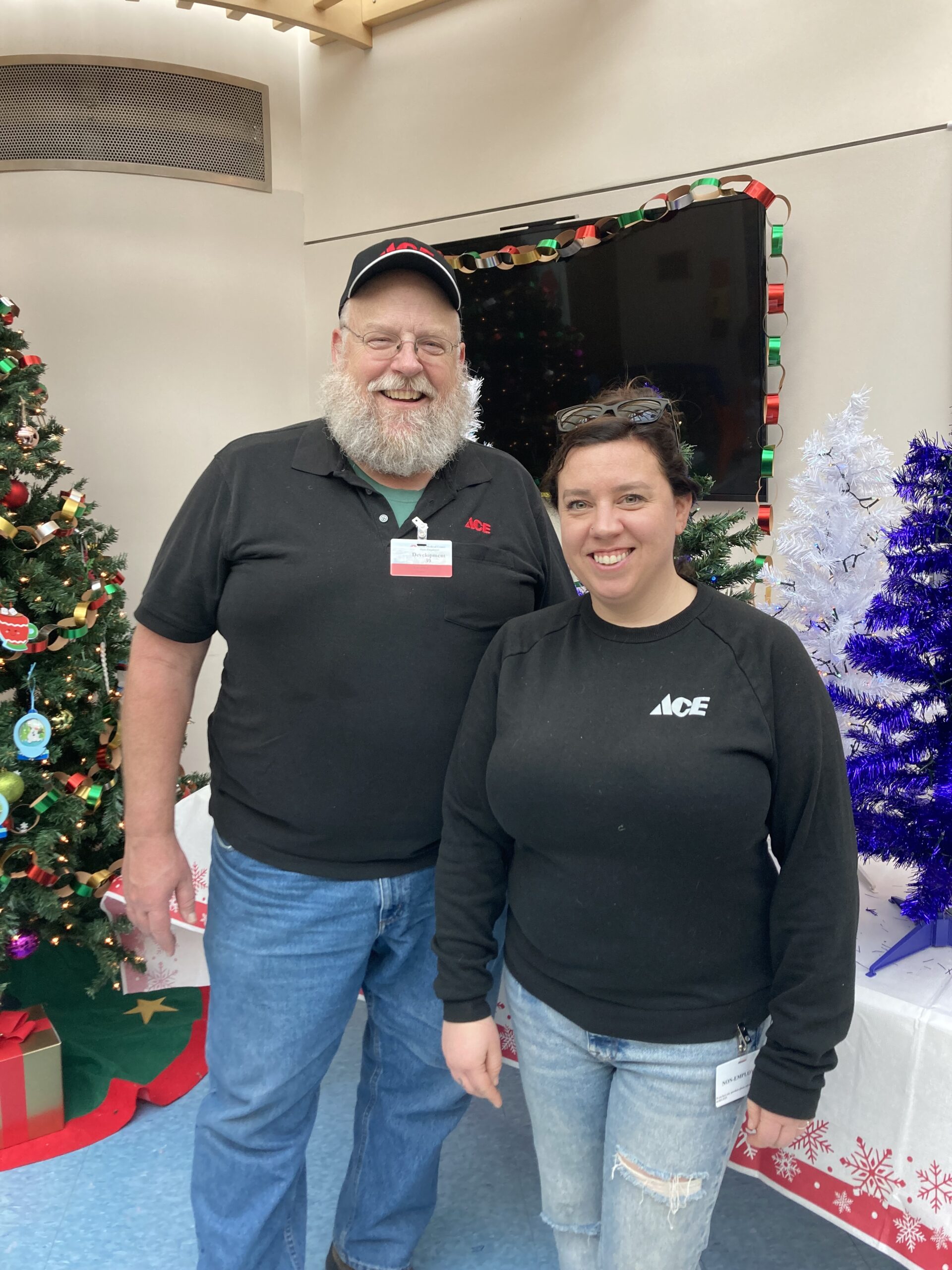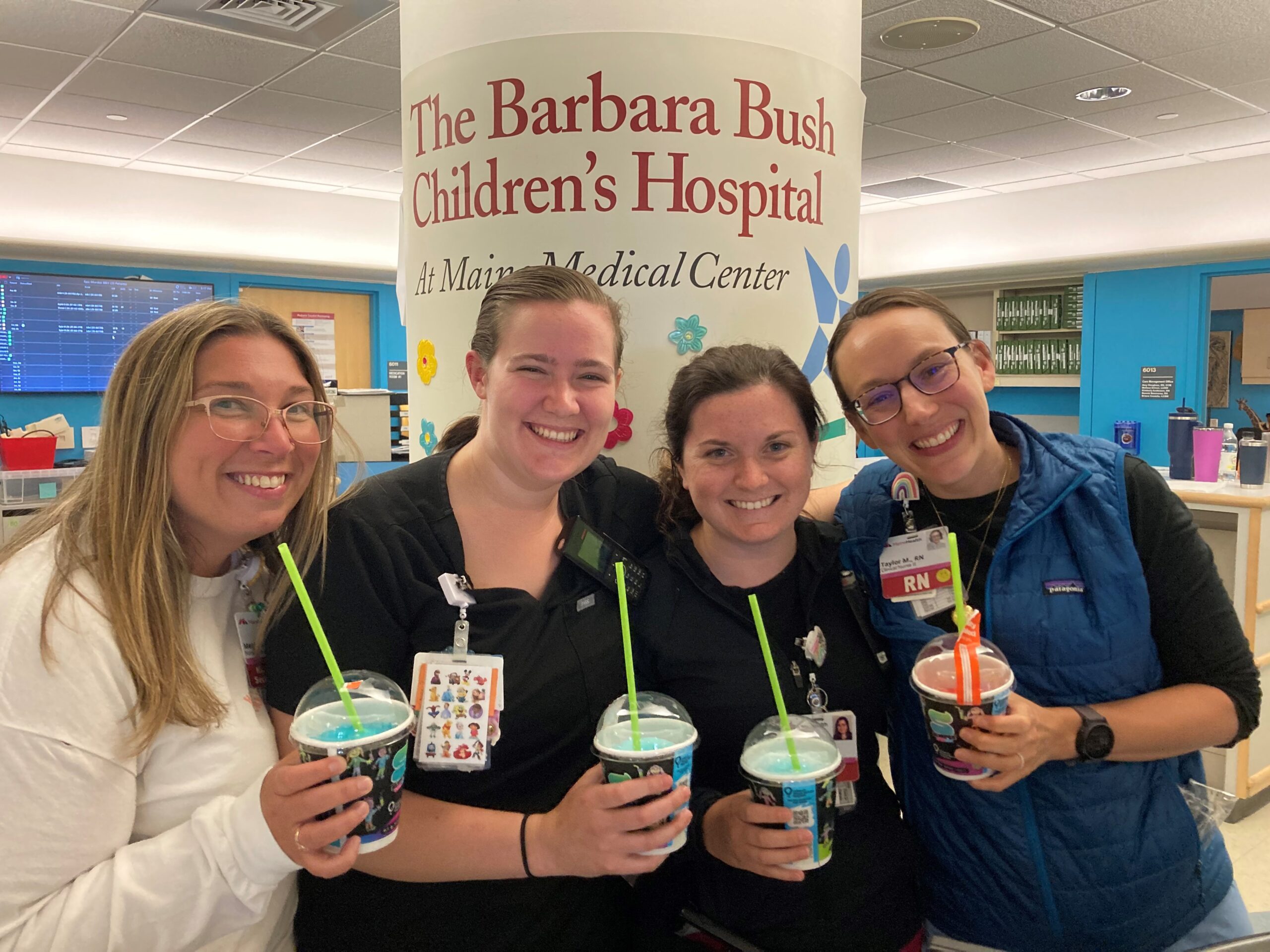Meet McKenzie!
Our friend McKenzie is seven years old, loves her stuffies, and is incredibly kind. Born with a genetic condition called infantile Pompe disease, McKenzie visited The Barbara Bush Children’s Hospital (BBCH) more than 100 times in the first two years of her life: she is a true Pompe Warrior! Her mom, Krystye, shares her story:
McKenzie came into this world fighting for her life, and continues to do so every day with stride and perseverance. She was born 6 weeks early, but overall seemed healthy at birth, weighing 6lb 2oz. It wasn’t until she was a month old that I started to notice that something wasn’t quite right. Of course I was a first time mom, but I also had some medical background and my mommy instincts were telling me something was wrong. Kenzie was having a hard time eating and wasn’t getting all the nutrition that she needed. Therefore, I made an appointment with her pediatrician and was able to get her in to be seen that day.
At the appointment they checked her oxygen level and noticed it was in the low 80’s (normal blood oxygen levels should be closer to 100). The doctor’s office sent us next door to the local hospital to get her stabilized and get some imaging done, before being sent to BBCH by ambulance. Those images informed us that her heart was triple in size and was touching her chest wall. It was the scariest day of our lives, or so I thought.
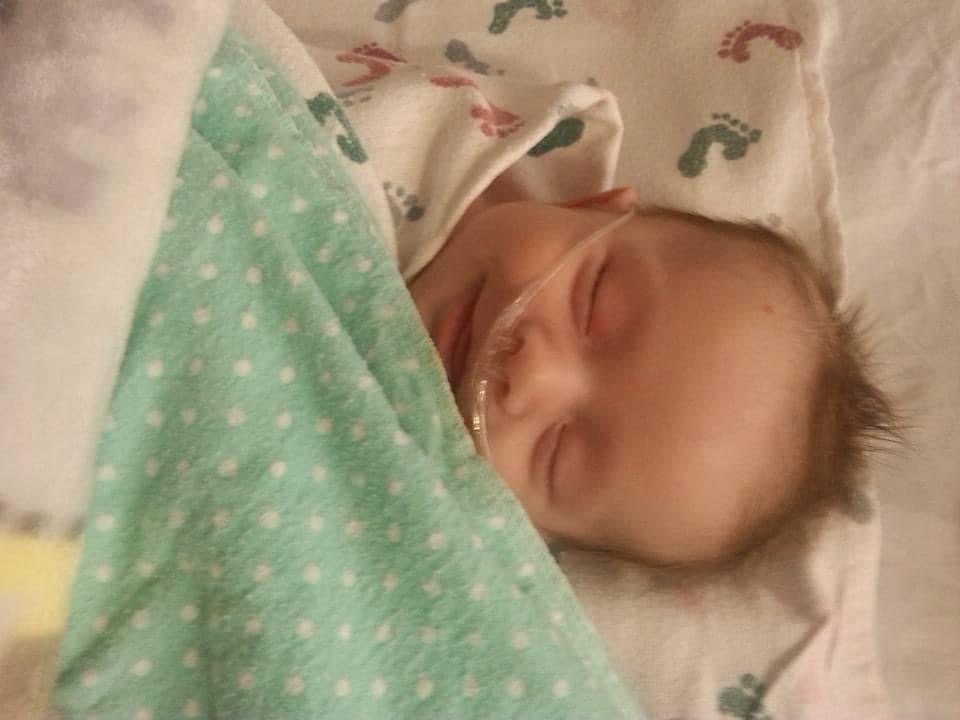
Mike and Sully. I’ll never forget that we were placed in the Mike and Sully room at BBCH when we arrived. That was our new home for the longest 2 weeks of our life. Over the course of the next 14 days, Kenzie underwent numerous tests and blood work to try and figure out what was wrong. The doctors at BBCH were amazing at explaining everything that was happening. However, we still didn’t have answers, and it was scaring me. At that moment in time we knew that she was having a hard time breathing, she was failing to thrive, had low muscle tone and an enlarged heart. The genetic team mentioned that there were a few rare genetic conditions that she could possibly be presenting with, and that they were going to test her and see if anything popped up. These possible conditions she was tested for were extremely scary. The doctors had a hunch of what it possibly was, and if they were correct, Kenzie would be the only child with this condition that most of them had ever seen. She also would be the only child in Maine with it. We were told she might not make it much longer and/or that she would have a lifetime of medical issues and need a ton of support.
At this point it had been close to two whole weeks and Kenzie was stabilized with supplemental oxygen and was put on a special formula to help her gain weight. We were sent home to spend time with our family for Thanksgiving while awaiting the test results. One week later, I received the worst phone call any parent can receive. McKenzie tested positive for a rare genetic condition that was terminal and had no cure. This was the scariest day of our lives.
Infantile Pompe Disease (IPD) is a very rare lysosomal storage disorder where the body doesn’t produce any or enough of the GAA enzyme to allow the body to break down glycogen into glucose. Therefore, all the glycogen builds up on their muscles and organs causing damage, which results in organs being enlarged and muscles not working properly. Left untreated, children have a life expectancy of two years at most. There is treatment for IPD, but it only slows down the progression of the disease; it isn’t a cure. Treatment consists of weekly infusions where the patient receives an enzyme replacement therapy (ERT), where they can receive some of the GAA enzyme to break down some of the build-up. This is usually done through a medical port that is surgically implanted under the skin. Infusions lengths are different for everybody, but on average, it can take from 4-6 hours of being hooked up to an IV.
Kenzie was and is still the only child with IPD in the state of Maine at this current time. We traveled to BBCH over 100 times the first two years of her life for treatments, surgeries, and procedures before she was approved to get infusions at home. Since she has received her ERT infusions at home, we average about 1 long hospital stay (usually 7-14 days at a time) every year to year-and-a-half. Mostly for blood infections due to her port, or for a day surgery.
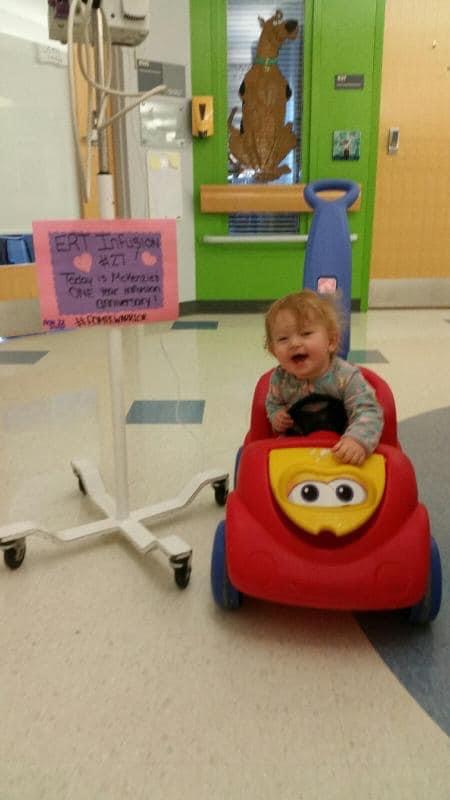
Every single time we are at BBCH we are treated like family. A good portion of the staff know exactly who McKenzie is and about her story because we have spent so much of her journey with them. The Child Life team has been paramount to Kenzie’s story. Due to everything that she has gone through medically in her short life so far, she has a very hard time with medical interventions (needles, testing, therapy, imaging, and so much more). Child Life is always willing to come in and help try to calm her down to make things go smoother. They are always willing to step up and bring in distractions, or give her a little treat to make it more manageable.
I remember a long visit we had almost two years ago where she was being treated for a blood infection. A Child Life specialist made a deal with her that she could use the air tube system to send a letter if she could get through getting poked. Sure enough, 30 minutes later they were off to the “mail tube” to send a letter from one BBCH station to the other, and send it back. McKenzie thought that was the coolest thing, being able to send a letter like that!
We are also very fond of Ms. Alice in the Child Life department. Ms. Alice has known Kenzie since day one, and we found out they share the same birthday! Alice is so sweet, comforting, and goes out of the way to make the stay as best as possible. Whether that be handing out hygiene products to parents to take a shower, or playing with your child so you can get something to eat or take a rest. Kenzie goes straight to Alice’s door when we arrive on the floor, every single stay, to let her know we came to visit. She is ALWAYS there with the biggest smile and warmest hug to welcome us back.
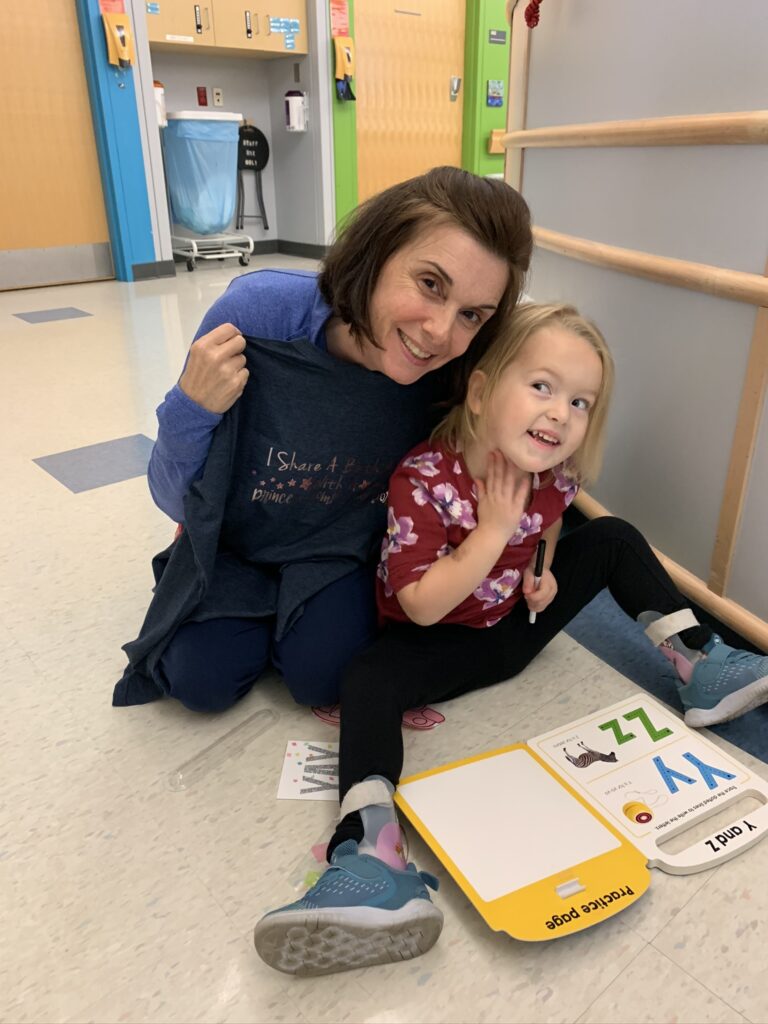
We have so many nurses and staff that we adore at BBCH, and they always go above and beyond to make things more manageable. One of our favorite nurses is Mel. She has also known Kenzie since the start of her IPD journey, and even though we typically don’t travel to BBCH for infusions anymore, if we are there and an infusion needs to be administered Mel is there and NEVER skips a beat!
We spend many hours playing in the playroom or riding her scooter in the hall while at BBCH and everyone is so willing to make the experiences of these kiddos as fun as possible while they are in the hospital. Because after all, being in the hospital is no fun – unless you can play video games, do arts and crafts, go to school, have princesses visit, and even ride your scooter in the hallway!
Since McKenzie started her Infantile Pompe Disease journey 7 years ago she has had over 365 pokes to receive her infusions, around 125 visits to BBCH, over 4 surgeries, hundreds if not thousands of hours of therapies, and one amazing family at The Barbara Bush Children’s Hospital. We are beyond thankful that BBCH saved McKenzie’s life, and has given us years of time with her that we were told wouldn’t happen. Kenzie is very active in activities, goes to school, and likes to play! The best thing about BBCH is the family that we have entered into and the memories that will stick with us for a lifetime because of the love, appreciation and respect that everyone has for these kiddos and their families. From a mom of a terminally ill kiddo – that within itself is a blessing.
